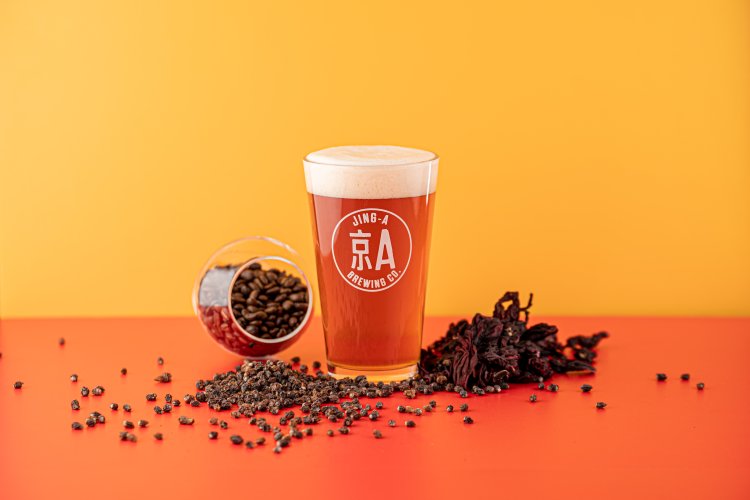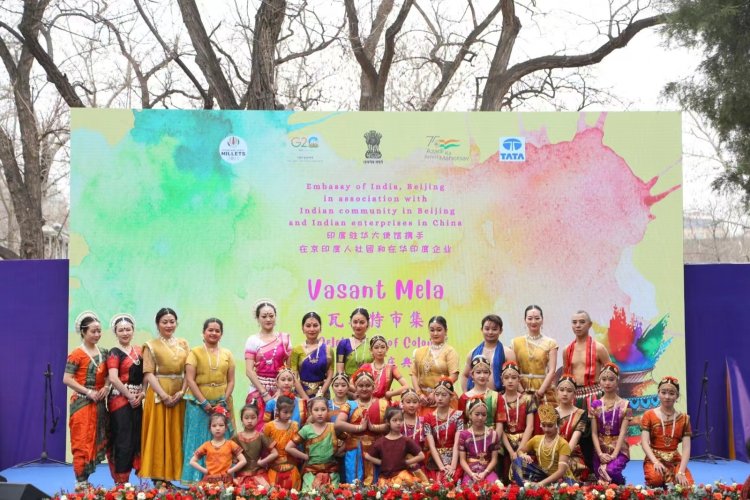Peek Into Pakistan: Samia Asif brings Mughal and Pakistani cuisine to Beijing
A former kindergarten teacher, and mother to three lovely girls, Samia Asif keeps busy these days by running Mughal’s Pakistani and Indian restaurant in Nali Patio with her husbanc. She spoke to us about what makes Mughal and Pakistani cuisine special, must-try Indian dishes and running a Pakistani restaurant in Beijing.
When and why did you first come to Beijing?
Before moving to Beijing in 2006, I spent three years here from 2000 to 2003. I learned Chinese during that time.
How did you come to open an Indian and Pakistani restaurant in Beijing?
This is actually our third experience with restaurants in Beijing. We started with a Subway franchise in 2000, and expanded it to three branches in the China World Trade Center and the Kerry Center. Then we opened the Curry King Restaurant, also in China World. Mughal’s came into being at 3.3 in Sanlitun in 2005; we moved to our new location on the 4th Floor of Nali Patio [in late 2008]. This is not only Mughal cuisine but Pakistani cuisine, and what drew us was obviously the lack of Pakistani cuisine in Beijing. Chinese people have begun to experiment with various cuisines, and the growing number of expats also presents opportunities.
What drew your focus to Mughal cuisine as opposed to other varieties of Indian food?
Pakistani food has more of the Mughal influence. We want to grow and add more Pakistani specialties from our country to the menu soon.
Are there others like it in the capital?
There is another outlet that serves basically the barbecue only. Mughal’s is the only formal dining restaurant, [but] we look forward to the growth of Pakistani restaurants in Beijing.
Besides your own restaurant, where would you recommend people go to eat good Indian food?
For Pakistani, we are the only option, but for Indian cuisine, we also recommend the Taj Pavilion.
What differentiates Pakistani cuisine from other kinds of cuisine from the Indian subcontinent?
Pakistani cuisine is slightly different in its spices, preparation and flavors. It has a lot to do with Persian influence and the post-partition evolution of cuisine in Pakistan. Essentially, cuisine in the subcontinent shares a lot of similarities, so we borrow from Indian, Nepali, Bangladeshi and Sri Lankan cuisines. The differences, however, come from the unique range of territories and people from the regions of Pakistan. In the plateau and mountain regions of the north, roast and barbecued meat is preferred, while curries and vegetables dominate in others. Seafood is popular in the coastal areas. Secondly, Pakistanis enjoy their meat very well done. We do not eat pork, but do enjoy beef, mutton, chicken and fish. In ensuring that meat is well done, new flavors often emerge. For example, Pakistani meat will be well-sauteed or fried with spices (we call it “bhuna”); this gives the meat a full-bodied aroma and removes any raw smell. Then it is cooked with plenty of vegetable juices till tender.
What kinds of dishes does your restaurant serve?
We have an array of barbecue dishes, curries, tikka masalas, biryanis, palak paneers, daals, and many fresh naans. We are planning to introduce additional curries and vegetable options. We are also beginning a Sunday morning brunch, in which we are introducing mild curries and parathas (flatbread), which are largely consumed in the morning. Our lunch buffet is fast and convenient for those with busy work schedules; people can experiment with many dishes, and we can introduce our services, all at a fabulous price. Notably, we also serve the vegetables and beans indigenous to our regions. Lentils, in particular, are not readily available in China. For example, we offer chana (chickpeas), daal (lentils) and palak paneer (spinach and cheese). Must-eats include our chappal kebabs, which are practically staples in the Peshawar region of Pakistan.
For someone new to Pakistani cuisine, what would you recommend they order?
For a la carte, we recommend samosas and pakoras for appetizers; mint lemonade and lassis to drink; mutton handi, lamb biryani, chicken karahi, and garlic buttered naan for the main courses; and our special homemade kulfi for dessert. At our Sunday brunch buffet, do not miss the following entrees: paya curry with naan; the channa, aaloo bhajee and halwa with puri; and the maghaz masala with paratha. At our weekday buffet lunches, you should try everything – there is a different menu every day!
What is the restaurant’s signature dish?
Our hottest dish is the chicken tikka masala, which is a mouthwatering dish made with onion-curried chicken tikka and tomato-based masala to give it that extra bite and moisture.
And what is your favorite dish on the menu?
I love the lamb biryani, and the chicken achari is a big favorite with my daughters. It is a pickle-based masala, and the girls love it because of its spicy and sour flavor.
What are the essential ingredients necessary to create authentic Pakistani food?
Patience and good quality spices! On a more informative note, onions, garlic and tomatoes are major staples for Pakistani cooking. A friend and I are planning to start classes in our cuisine soon; if people want to learn, they should look us up.
What are Mughal’s cuisine staples?
We love our wheat, meat, rice, local vegetables and shorba (the gravy).
Does Mughal’s incorporate any Chinese elements into its cuisine or decor?
We love Chinese culture, but we wanted to provide patrons with an authentic Pakistani environment, so we used woodwork paneling, brass lamps and hanging textiles to create that genuine feeling.
When you’re not in the mood for Pakistani or Indian cuisine, where do you like to dine?
We enjoy Rumi, Annie’s, and Grandma’s Kitchen.
The Taj Pavilion
1) Daily 11.30am-2.30pm. L222, Europlaza, 99 Yuxiang Lu, Tianzhu, Shunyi District. (8046 3238); 2) Daily 11.30am-2.30pm, 6-10.30pm. 1/F, West Wing, China World Shopping Mall (next to KFC), Chaoyang District. (6505 5866)
泰姬楼印度餐厅, 1) 顺义区天竺镇裕翔路99号欧陆时尚购物中心L222室; 2) 朝阳区国贸西楼1层肯德基旁边
Rumi
Daily 11.30am-midnight. 1A Gongti Beilu (opposite Zhaolong Hotel), Chaoyang District. (8454 3838) 朝阳区工体北路甲1号兆龙饭店对面
Annie’s
Several other locations around town, including: 1) Daily 11am-11pm. 2-3-93 Ritan High Life (across from North Gate of Ritan Park), Chaoyang District. (8569 3031) 朝阳区神路街39号日坛上街2-3-93; 2) Daily 11am-11pm. A1 Nongzhan Nanlu (near the west gate of Chaoyang Park), Chaoyang District. (6591 1931) 朝阳区农展南路甲1号 (朝阳公园西门南侧)
Grandma’s Kitchen
Several other locations around town, including: 1) Daily 9am-10pm. 47-2 Nanchizi Dajie, Xicheng District. (6528 2790) 西城区南池子大街47-2号; 2) Daily 7.30am-11pm. 11A Xiushui Nanjie, Jianguomenwai, Chaoyang District. (6503 2893) 朝阳区建国门外秀水南街甲11号(友谊商店后面)
Mughal’s
Mon-Fri 11am-3pm, 5.30-11pm; Sat-Sun 11am-11pm. Stall C508, Nali Patio, 81 Sanlitun Beijie, Chaoyang District. (5208 6082, mughalbeijing@yahoo.com) www.mughalbeijing.cn
朝阳区三里屯北街81号那里花园1号楼C508室






